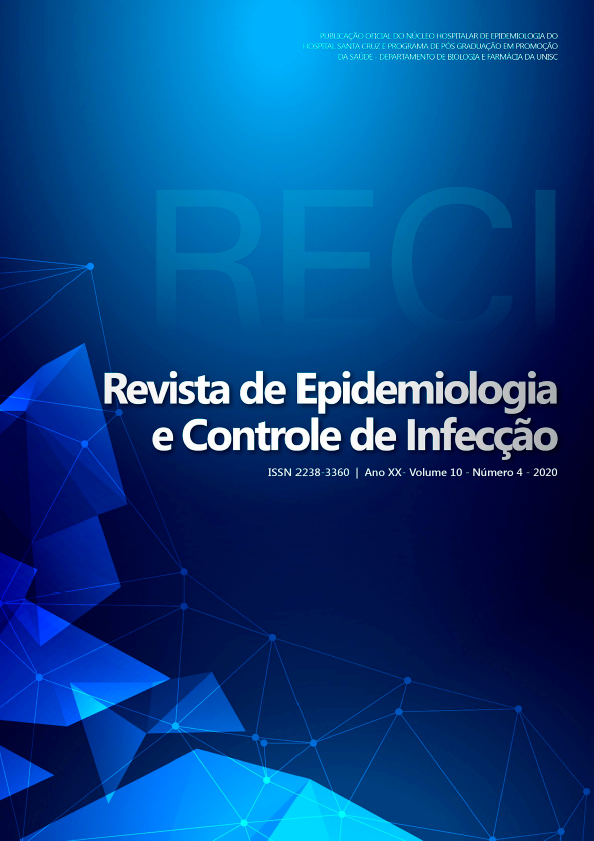Paracoccidioidomycosis in the northern region of Rio Grande do Sul
DOI:
https://doi.org/10.17058/reci.v10i4.15583Keywords:
Paracoccidioidomycosis, Pbmycosis, Epidemiology, P. brasiliensisAbstract
Background and Objectives: Paracoccidioidomycosis (PCM) is a systemic disease caused by the dimorphic fungus Paracoccidioides brasiliensis found in the tropical and subtropical regions of Latin America. This study aimed to perform a retrospective analysis of PCM cases from the northern region of Rio Grande do Sul, Brazil. Methods: A total of 200 records of PCM cases from 1995 to 2015 were analyzed, diagnosed at the local reference pathology laboratory. Results: Of the patients, 185 were male and 15 female. Patients ranged in age from 31 to 80 years, the largest proportion (35,5%) being aged between 51 and 60 years and living or working in the countryside. Clinical samples were mostly obtained from the oral cavity, followed by the oropharynx, lungs, brain, skin, and prostate. Conclusion: PCM is endemic in the south of Brazil, as the local economy is largely based on agricultural activities, favoring the contact of the population with P. brasiliensis. Due to the great similarity between PCM symptoms and other respiratory diseases, the differential diagnosis is essential for the correct treatment of the disease and to avoid its progression.Downloads
Downloads
Published
How to Cite
Issue
Section
License
Copyright (c) 2021 Débora Nunes Mario, Daniela Schwingel, Luiza Paloma dos Santos Girotto, Lygia Maria Mouri Malvestio, Paulo Josué da Silva Jaques, Gabriel Krieser Biolowons

This work is licensed under a Creative Commons Attribution 4.0 International License.
The author must state that the paper is original (has not been published previously), not infringing any copyright or other ownership right involving third parties. Once the paper is submitted, the Journal reserves the right to make normative changes, such as spelling and grammar, in order to maintain the language standard, but respecting the author’s style. The published papers become ownership of RECI, considering that all the opinions expressed by the authors are their responsibility. Because we are an open access journal, we allow free use of articles in educational and scientific applications provided the source is cited under the Creative Commons CC-BY license.


